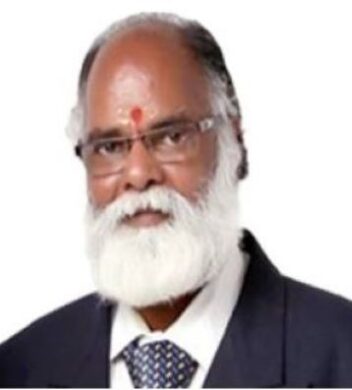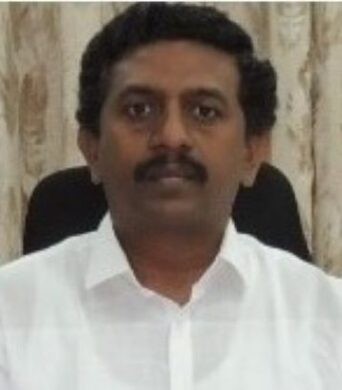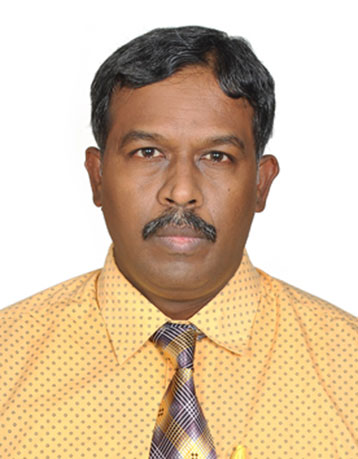Message from
Dr. P. Suyambu
Founder & Chairman
PSN College of Engineering and Technology

Dear Members of the Academic Community,
With immense pleasure, I extend you an invitation to participate in the International Conference on Engineering Challenges in Global Sustainable Development, organized by the Department of Mechanical Engineering in our PSN College of Engineering and Technology, Tirunelveli on January 30 and 31, 2025.
This prestigious event serves as a platform for professionals, post-graduates, researchers, and academicians to learn and engage in discussions on the latest advancements, trends, and prospects in the fields of renewable energies and global sustainable development. Furthermore, this conference aims to explore and exchange information, experiences, and insights on related topics such as green building, digital and smart civil construction, solar building, and agro-energy complexes, etc.
By bringing together experts from various domains, this conference seeks to foster a collaborative environment where participants can share their knowledge and expertise on practical applications, operations, maintenance, teaching, and other aspects of sustainable engineering. We believe that such interactions will significantly contribute to the development and implementation of innovative solutions to tackle global challenges in sustainable development.
I kindly request you to share this invitation with your colleagues who may be interested in this conference. Your active participation and valuable contributions will undoubtedly make this event a grand success and help shape the future of engineering for global sustainable development.
Looking forward to welcome you in January 2025 at PSN College of Engineering and Technology.
Message from
Dr. P. Selvakumar
Executive Director
PSN College of Engineering and Technology

Dear Esteemed Participants and Enthusiasts,
I am thrilled to announce the International Conference on Engineering Challenges in Global Sustainable Development, organized by the Department of Mechanical Engineering at PSN College of Engineering and Technology, Tirunelveli on January 30 and 31, 2025.
This International Conference on Engineering Challenges in Global Sustainable Development offers a unique platform for participants to engage with a diverse range of examples and case studies that demonstrate the practical applications of sustainable engineering solutions. By showcasing these examples, attendees can gain valuable insights into the latest advancements and innovative approaches being employed to tackle pressing global issues. One of the key topics to be discussed at this conference is the integration of renewable energy sources into our daily lives. A notable example of this is the implementation of solar-powered streetlights in various cities worldwide. These streetlights not only reduce energy consumption and costs but also contribute to a cleaner environment by minimizing carbon emissions. Participants get enriched by experts about the challenges faced during the design, installation, and maintenance of such systems, as well as the potential for future growth and expansion.
One more important aspect of this conference will be the exploration of green building practices and their role in promoting sustainable development. A compelling example of this is the construction of the world’s first net-zero energy building, the Bullitt Centre in Seattle, USA. This building generates as much energy as it consumes annually using solar panels, rainwater harvesting, and other sustainable technologies. By sharing experiences and lessons learned from such projects, participants can gain valuable insights into the implementation of green building practices and their long-term benefits.
In the realm of agro-energy complexes, this conference will delve into the integration of agriculture and renewable energy production. A noteworthy example is the establishment of biogas plants on agricultural land, which convert organic waste into clean energy while also reducing greenhouse gas emissions. By discussing such examples, participants can explore the economic and environmental benefits of agro-energy complexes and identify opportunities for their expansion.
This conference will address the challenges faced in achieving the United Nations’ Sustainable Development Goals (SDGs) and the role engineering can play in addressing these goals. By examining examples of successful collaborations between academia, industry, and government, attendees gain a better understanding of the interdisciplinary approaches required to tackle complex global challenges.
By participating in this conference, you will have the chance to explore cutting-edge research and discover novel solutions to complex engineering problems. Your presence will enrich the event with diverse perspectives and contribute to the creation of a knowledge-sharing platform that transcends geographical boundaries.
I extend my warm invitation to all interested individuals and encourage you to actively participate in this conference. Together, let us strive to make this event a resounding success and take a significant step forward in shaping the future of engineering for global sustainable development.
Wishing you a productive and enlightening experience during this conference.
Message from
Dr. Muruganandam Muthanandam
Convener
PSN College of Engineering and Technology

Dear Members of the Engineering World Fraternity,
The Committee of the United Nations has arrived at an agenda to achieve global sustainable development by 2030. There are about seventeen sustainable development goals (SDGs) such as (1) no poverty, (2) zero hunger, (3) good health and well-being, (4) quality education, (5) gender equality, (6) clean water and sanitation, (7) affordable and clean energy, (8) decent work and economic growth, (9) industry, innovation, and infrastructure, (10) reduced inequalities, (11) sustainable cities and communities, (12) responsible consumption and production, (13) climate action, (14) life below water, (15) life on land, (16) peace, justice, and strong institutions, and (17) partnerships.
As energy is the key to achieve every other 16 SDGs, it is apt to mention the potential of distributed electricity generation and the engineering challenges in achieving SDG 7 about affordable and clean energy. In distributed electricity generation, a biogas-fired micro-gas turbine (MGT) generator with an output from 5 kW to 500 kW is one of the options. With the concept of the agro-energy complexes, efforts are being made in European countries to integrate biogas production from agricultural farm wastes and electricity generation using MGT. The development of an MGT requires the design and precision manufacturing of tiny radial compressors and turbines that are efficient against tip leakage. To improve thermal efficiency, MGTs are equipped with exhaust gas heat recuperators. To increase the temperature of gas at the entry to the turbine, cooling systems are to be developed. MGTs drive the Permanent Magnet Alternators (PMAs). PMAs generate electricity at a frequency in the range of a few kHz equivalent to the speed from 50000 RPM to 100000 RPM of the MGTs. Using solid-state power electronics, the unsteady electrical power in the range of a few kHz is converted into steady electrical power from 380 V to 480 V and from 40 Hz to 60 Hz grid frequency. High-speed air bearings are necessary to support the rotor. In distributed electricity generation where an MGT is used, air bearings can be a reliable option for extending the service time between overhauls. The major obstacle to the application of air bearings is the phenomenon of a self-excited whirl. During the air-bearing design, research efforts are being made to analyze and evaluate this kind of dynamic instability.
This international conference aims to focus on such engineering challenges for attaining the aforementioned global sustainable development goals of the United Nations. It is my pleasure to invite you all to participate in the deliberations that address engineering challenges in access to affordable food, clothing, shelter, energy systems, and education, climate change, biodiversity, pollution, jobs and social protection, and digital connectivity.

